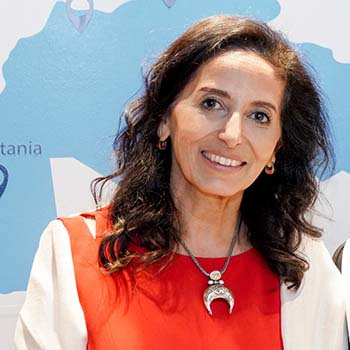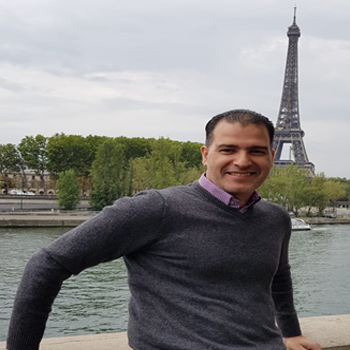About Us
About Us
The UNESCO Chair for World Heritage and Sustainable Tourism Management in the Arab region was established in 2022 in the German University for Technology in Oman in collaboration with the Arab Regional Centre for World Heritage. The chair is established to promote world heritage sites and sustainable tourism in the Arab region, to set the strategic objectives of UNESCO to implementation and to contributes to implementing the sustainable development goals locally and regionally.
World Heritage Sites draws international attention to heritage sites of outstanding universal value and is expected to increase the number of visitors to these sites. The chair aims to support the role of world heritage in contributing to the Sustainable Development Goals by employing tourism in its comprehensive and sustainable manifestation to drive socio-economic development and to maximize benefits to the communities surrounding these sites.
The Chair is established in partnership with the Arab Regional Centre for World Heritage, a UNESCO Category II Centre based in the Kingdom of Bahrain. The center serves 19 Arab States in the promotion and management of cultural and natural sites by providing technical support and reinforcing the implementation of the 1972 World Heritage Convention in the region. The chair complements the role of the Arab Regional Centre for World Heritage and aims to introduce several academic programs in the field of heritage management, digitalization of heritage, heritage narrative and interpretation and heritage economics.
Prof. Heba Aziz,
Chair holder
Sustainable Development Goals
The document “Transforming our world: the 2030 Agenda for Sustainable Development” confirmed the alignment between the chair’s objectives and activities and the sustainable development agenda and the SDGs. The chair’s activities can make demonstrable contributions to specifically:
Decent work and economic growth

SDG 8 decent work and economic growth, especially 8.9 that looks into promoting sustainable tourism that creates jobs and promote local cultures and traditions. The chair long term objective is to ensure that World heritage can become a tool for socio-economic development and to promote the type of tourism that can achieve that. Reconsidering the governance structure of WHS and encouraging PPP, investment in sustainable tourism projects, capacity building workshops on entrepreneurship for Heritage and training for tour guides are a few examples of the chair can contribute to goal 8.
Sustainable cities and communities

Goal 11 Sustainable cities and communities specifically sub-goal 11.4 which looks at strengthening efforts to safeguard world cultural and natural heritage. To that end it is proven that tourism and tourism facilities could if not carefully planned have a negative impact on the site. Bringing heritage closer to tourism by identifying innovative and sustainable development approaches that safeguard the cultural and natural sites, enhance visitors experience and benefit the community is one chair expected and desired results.
Responsible consumption and production

SDG 12 sustainable consumption and production (SCP) is one of the goals that addresses tourism especially 12.b which is concerned with monitoring the sustainable development impact for sustainable tourism that creates jobs and promotes local culture and products. The chair’s main mission is to promote and develop and manage tourism in a sustainable manner. To that effect the chair (once established) will join the SCP initiative One Planet and will ensure that world heritage sites and the tourism industry activities within it are managed in a manner that enhances sustainable tourism value chain, looking at the sustainable use of resources and sustainable procurement. The chair will identify WHS to pilot within its mandate and will recognise this achievement via a recognition scheme.
Contribution to national and regional development
Oman vision 2040 has clearly identified Citizenship, Identity and National Heritage and Culture as one of its priority areas.
The establishment of the chair in collaboration with the ARCWH is in itself a demonstration of regional collaboration to achieve perceived common interest. The main cause of ARCWH is to strengthen the implementation of the 1972 World Heritage Convention in the Arab States Region by enhancing the application of the decisions and recommendations of the World Heritage Committee for the benefit of World Heritage properties in the region. The UNESCO chair will be supporting this cause by linking this cause further to socio-economic development and by using sustainable tourism at WHS as a mechanism for implementing SDGs.
On the national front Oman has prepared its vision 2040 and has identified clearly as one of its priority areas Citizenship, Identity and National Heritage and Culture. In this regard the vision has reiterated the role that private sector, civil society organisations and government policies should play in preserving the cultural legacy and that tourism activities can be a main catalyst for that.
The vision also prioritised the development of governorates and sustainable cities. World Heritage and equally national heritage are spread across Oman in different governorates. The chair will be looking at the sustainable management of tourism within world heritage sites. Thus, working as an implementation mechanism for this priority.
Labour market and employment is another priority. The objective and activities of the chair is closely linked to this priority which is in return linked to SDG7. Tourism can contribute to the creation of employment and the encouragement of creative industries. The chair will run a number of capacity building workshop targeting students and members of the local community encourage an entrepreneurship spirit.
2040 vision has also set education, learning and scientific research as a main priority; the UNESCO chair is placed in one of Oman’s leading universities and is supported by the university research, teaching and innovation mandate. The university has agreed on allocating a budget for research and innovation in that field. Areas like heritage and technology will be receiving special attention and encouraged by the multidisciplinary approach of the university.
Objectives
Development Objective (long term)
To introduce and facilitate management practices of tourism at world heritage sites in alignment with SDGs leading to demonstrable socio-economic development for the sites and its neighbouring communities.
Specific Objectives
- To Identify innovative funding and governance models for WHS
- To deliver a range of capacity building and stakeholders engagement workshops targeting youths, local communities, site managers, tour guides
- To support the development of tourism at World Heritage Sites
- To engage in range of scholarly activities with the objective of disseminating knowledge and widening research in that field
Team Members

Prof. Heba Aziz
Director of the Arab Regional Centre for World Heritage

Jokha Al Saqri
...

Fatema Al Husainia
...

Dr. Osman Barghouth
Associate Professor at the German University of Technology in Oman

